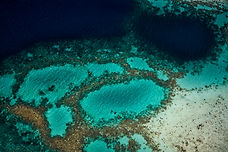
Pacific Conservation Database
Short-term Investments in Business Development and Market Intervention in Papua New Guinea
PIRT Member organisations
The Nature Conservancy (TNC)
Other partner organisations
Mwanus E Ndras Asi Resource Development Network (MENAR)
Countries of implementation
Papua New Guinea
About
TNC is working with a tribal cooperative Mwanus E Ndras Asi Resource Development Network (MENAR) on Manus Island to pilot a community-based, small-scale fisheries model designed to reduce pressure on overexploited reef fish and coral reefs. TNC has provided short-term investments to cover upfront equipment costs, including solar refrigeration/freezers centres and inshore fish aggregating devices (IFADs) that attract pelagic (open ocean) fish and small solar-powered refrigeration centres. TNC and MENAR have conducted pre-baseline household surveys in February this year and will follow-up with household surveys in December to measure the impact of iFAD usage. Creel surveys are also running concurrently and will be completed in December.
Framework Action Tracks
01 – Our people at the centre of conservation action, 04 – Sustainable and resilient island economies, 13 – Ending unsustainable fishing
Status
Ongoing
